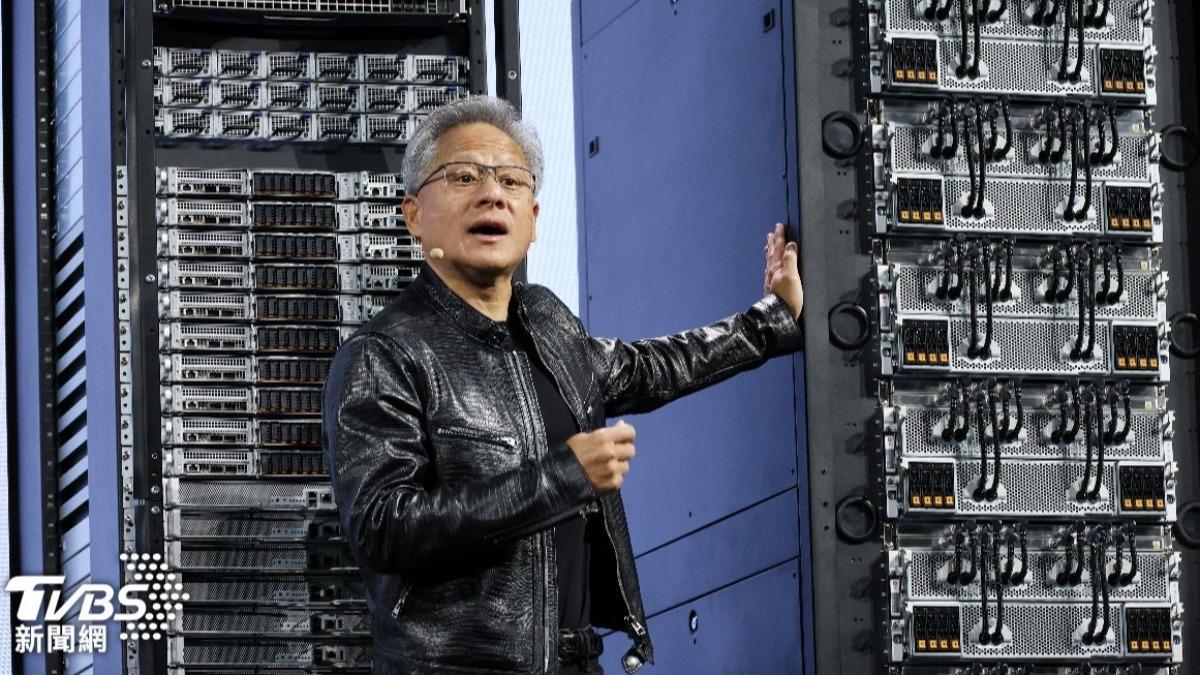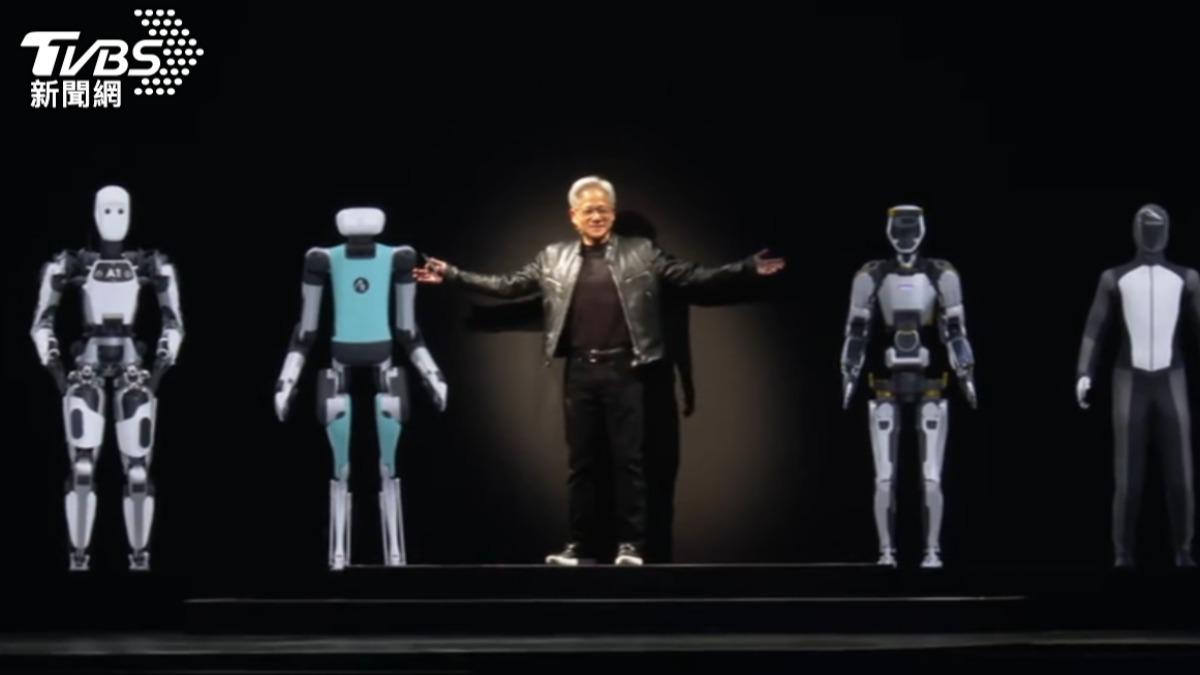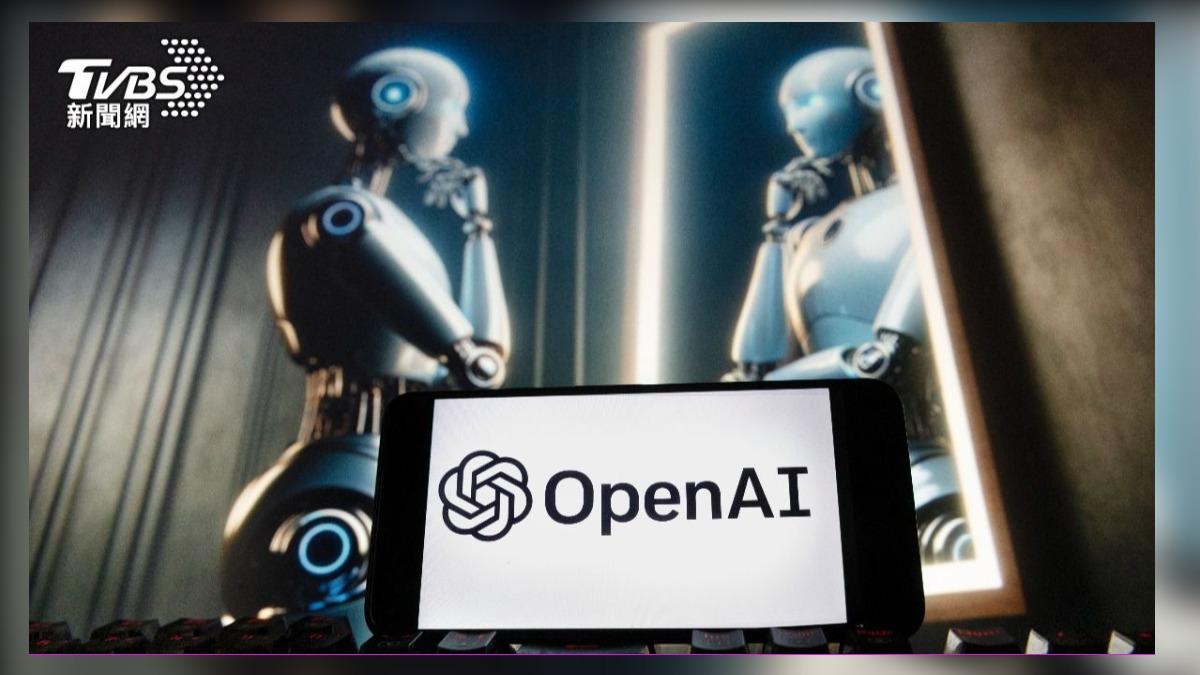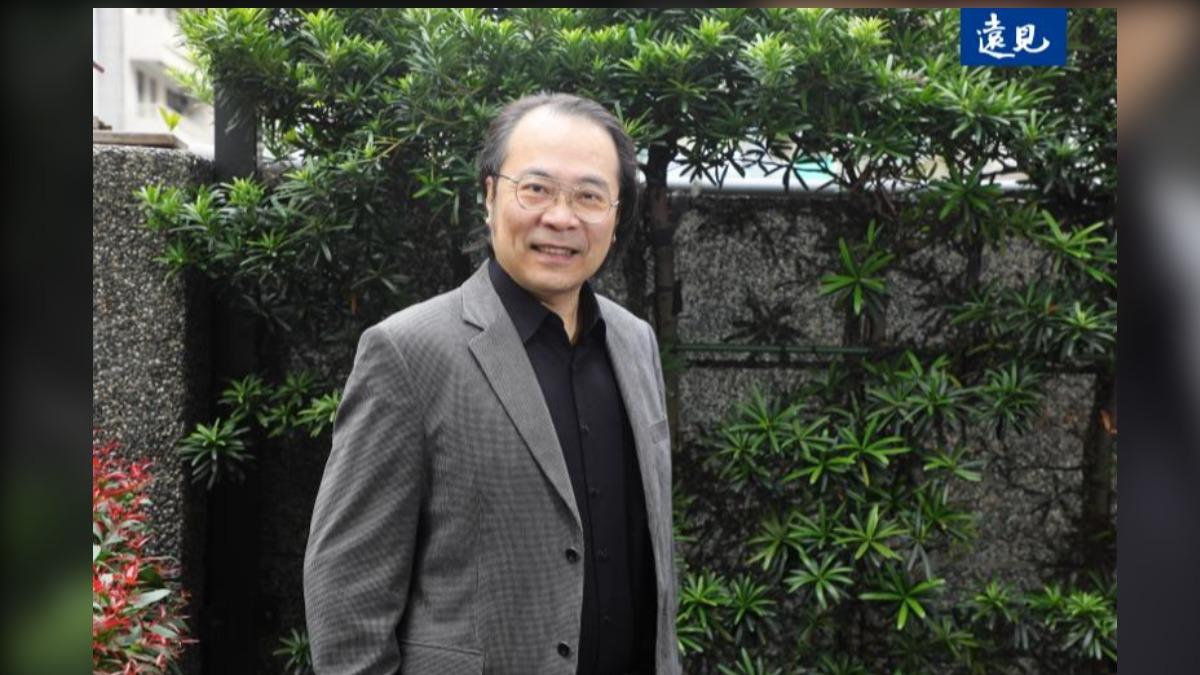TAIPEI (Global Views/TVBS News) — Taiwan basked in a moment of glory as Jensen Huang (黃仁勳), co-founder and CEO of NVIDIA (輝達), declared a golden age of AI in collaboration with Taiwan. The CEOs of AMD (超微), Qualcomm (高通), and Intel (英特爾) converged at COMPUTEX, seemingly reflecting the same sentiments. Yet, why did Chien Lee-feng (簡立峰), former managing director of Google Taiwan, caution against an AI bubble crisis?
In the early summer of 2024, "Taiwan's glory" (台灣之光) acquired a new moniker: AI.
When NVIDIA co-founder and CEO Jensen Huang presented a map of 107 Taiwanese partners during his speech at the National Taiwan University (國立台灣大學) Sports Center, the audience of over a thousand erupted in excitement, and countless livestream viewers were equally moved. They all took pride in the AI golden era forged by Taiwan and NVIDIA.

Following his speech, the COMPUTEX 2024 broke away from its past underwhelming performances, drawing 1,500 high-tech companies globally. The event was monumental, with CEOs from AMD, Qualcomm, and Intel in attendance to give speeches.
"Taiwan's entire electronics industry has been revitalized," remarked Chien, the former managing director of Google Taiwan and a board director at Appier. "In truth, Taiwan's luck isn't bad," Chien observed. The computer industry first brought Taiwan to the world stage, followed by the iPhone's "An Apple saved Taiwan" effect. When phone sales began to decline, AI appeared. NVIDIA partnered with Taiwan's semiconductor and server giants, sparking an AI industry revolution. "I joke that this time, it was Jensen Huang alone who saved Taiwan," said Chien.
Chien Lee-feng
Birth Year: 1963
Career: Former Managing Director of Google Taiwan, Deputy Director at the Academia Sinica’s Institute of Information Science (中研院資訊所), Professor at National Taiwan University
Current Position: Board Director at Appier and iKala
Chien, while preparing a course for the Leadership Impact Institute under the Global Views—Commonwealth Publishing Group, noted the potential risk of an AI bubble. He plans to instruct Taiwanese business leaders on developing AI industry niches and avoiding threats, which may mark his first six-hour lecture in two decades.
Regarding Taiwan's electronics industry, the approach to the AI wave has been "passive innovation" as the ambitious NVIDIA aspires to be the "Wintel" of the AI age, in which Taiwan's electronics sector is a key player.
Wintel, the combination of Microsoft's Windows and Intel's CPUs, dominated the personal computer market. In the AI era, the "software" component is represented by Open AI or Google, and the "hardware" by NVIDIA.
NVIDIA, however, seeks to dominate both hardware and software, making Taiwan a perfect partner.
Maturity of Life Cycle Leads to Bubble
Chien, who previously oversaw Google's global search, has frequently mentioned the term "New G7" in public settings. Among the top ten companies in terms of global market capitalization, seven are AI-related: Microsoft, Apple, NVIDIA, Google, Meta, and TSMC. Yet, this isn't entirely beneficial for Taiwan.
Comparing it to the gold rush, NVIDIA can be described as the shovel designer of the "New G7," TSMC as the shovel manufacturer, and the other five companies as the shovel users. "The users of shovels will grow, but the manufacturers will have only one peak period," Chien assessed. Ultimately, every product's life cycle will reach maturity.
As reported by The Wall Street Journal (華爾街日報), Sequoia Capital (紅杉資本), a Silicon Valley venture capital firm, estimated that in 2023, industries spent US$50 billion on NVIDIA chips for AI training but generated only US$3 billion in revenue.
"An oft-cited figure in arguments that we're in an AI bubble,” wrote Christopher Mims, a tech columnist for The Wall Street Journal. The US$50 billion and US$3 billion gap is astonishing, but the genuine concern for the industry's long-term health is the high cost of running AI.
Moreover, some AI startups are valued higher than unicorn companies after their IPOs. Chien predicted that an AI bubble is inevitable.
Another risk is that AI could forge a new era of digital dominance. Although AI is transforming global industries, Chien believes, "We overestimate today and underestimate tomorrow."
Although people believe AI affects every industry, it hasn't yet. So far, it has only impacted the world's most competitive companies. Other businesses that are unable to profit from AI can't invest heavily. Only the most competitive global firms can afford AI, and when the next phase of new applications emerges, these companies might take everything.
AI Robots May Be the Solution
According to Chien, two methods can delay the AI bubble from bursting: integrating AI into consumer electronics like AI PCs and AI phones, which consumers will pay for, and developing AI enterprises, which entails adding AI to all corporate software, something businesses are willing to invest in.
"However, AI PCs and AI phones might be a non-issue," said Chien, who was also a former researcher at Academia Sinica’s Institute of Information Science. He noted that at the COMPUTEX 2024, hailed as the best, all the chip CEOs were present, but nearly none of the major software companies or internet giants showed up.
At COMPUTEX, Microsoft unveiled its Copilot+PC laptop, which features a "Copilot" button. Despite this significant launch, no top executives from Microsoft attended the event.
The future areas that will genuinely enable Taiwan to stand firm amid the AI bubble are Edge AI and robotics. Edge AI applications involve directly deploying AI algorithms and models on edge computing devices, such as sensors and industrial computers.
Chien noted that AI necessitates a range of hardware, and Taiwan has extensive experience in manufacturing ICT hardware. Since NVIDIA focuses solely on chip production, there is considerable room for cooperation between Taiwanese firms and NVIDIA. "NVIDIA needs Taiwan, and Taiwan needs NVIDIA," he stated.
Robots might be another opportunity to prevent the AI bubble from bursting. During Huang's speech, he brought a lineup of humanoid robots on stage, representing top companies such as Figure, Boston Dynamics (波士頓動力), Fourier Intelligence (傅立葉智能), and Unitree Technology (宇樹科技). These robots exemplify the AI giant's vision of transitioning AI from the virtual realm to the physical world.

Why did Huang feature this segment in his speech? Chien suggests that it is because ChatGPT lacks a viable business model. Despite its impressive ability to generate programs and content, few people are willing to pay. Integrating ChatGPT into robots could provide a way to monetize AI. "The new glory of Taiwan" is advancing, yet it needs to see through the haze and make careful choices to maintain its luster.
What Type of Leadership Ability Should You Cultivate If AI Becomes Your Employee?
When AI becomes an indispensable company employee, leaders will face unprecedented challenges in their roles and responsibilities. Picture a team comprising enthusiastic human colleagues and a cadre of efficient, precise, and tireless AI assistants. This scenario signifies a technological leap and a transformation in organizational culture and team collaboration.
"Many company supervisors are encountering human-machine collaboration for the first time," said Chien. Leaders must exhibit a forward-thinking vision and adaptable response strategies in this new era.
Setting standards for human-machine collaboration is vital. In Amazon's picking warehouses, humanoid robots and human workers perform tasks together. Leaders must ensure that human employees do not feel threatened by AI replacements but appreciate AI's ability to lighten their workload. Additionally, ensuring operational safety and mitigating cybersecurity risks have become essential subjects for leaders.
Chien frequently recommends that when facing the AI technology wave, individuals should act swiftly, whereas small and medium-sized enterprises should advance more cautiously. "Individuals are in a somewhat awkward position," Chien noted. Generative AI mainly boosts content productivity, but the fast pace of software evolution and the plethora of available tools means that acting slowly could lead to losing international competitiveness.

Shifting from a problem-solving approach based on making changes to one focused on asking questions will be essential. Cultivating the ability to ask questions, or "question leadership," will be vital. "Beware of your brain being outsourced," Chien stated. If AI can drive cars automatically today, people will forget how to drive, which will lead to diminishing human value. Therefore, an unchanged self-learning ability should be kept when interacting with AI, as having AI does not mean learning can be skipped. On the other hand, small and medium-sized enterprises should advance slower. If businesses haven't figured out how to profit from AI, they should slow the pace of introducing AI.
"Nevertheless, Taiwan's large enterprises need to be careful. Their international competitors might be using AI to eliminate them without a trace," Chien cautioned.
Here is the link to the original story on Business Today Website: 簡立峰為何說AI PC、AI手機是假議題?



